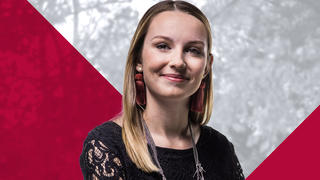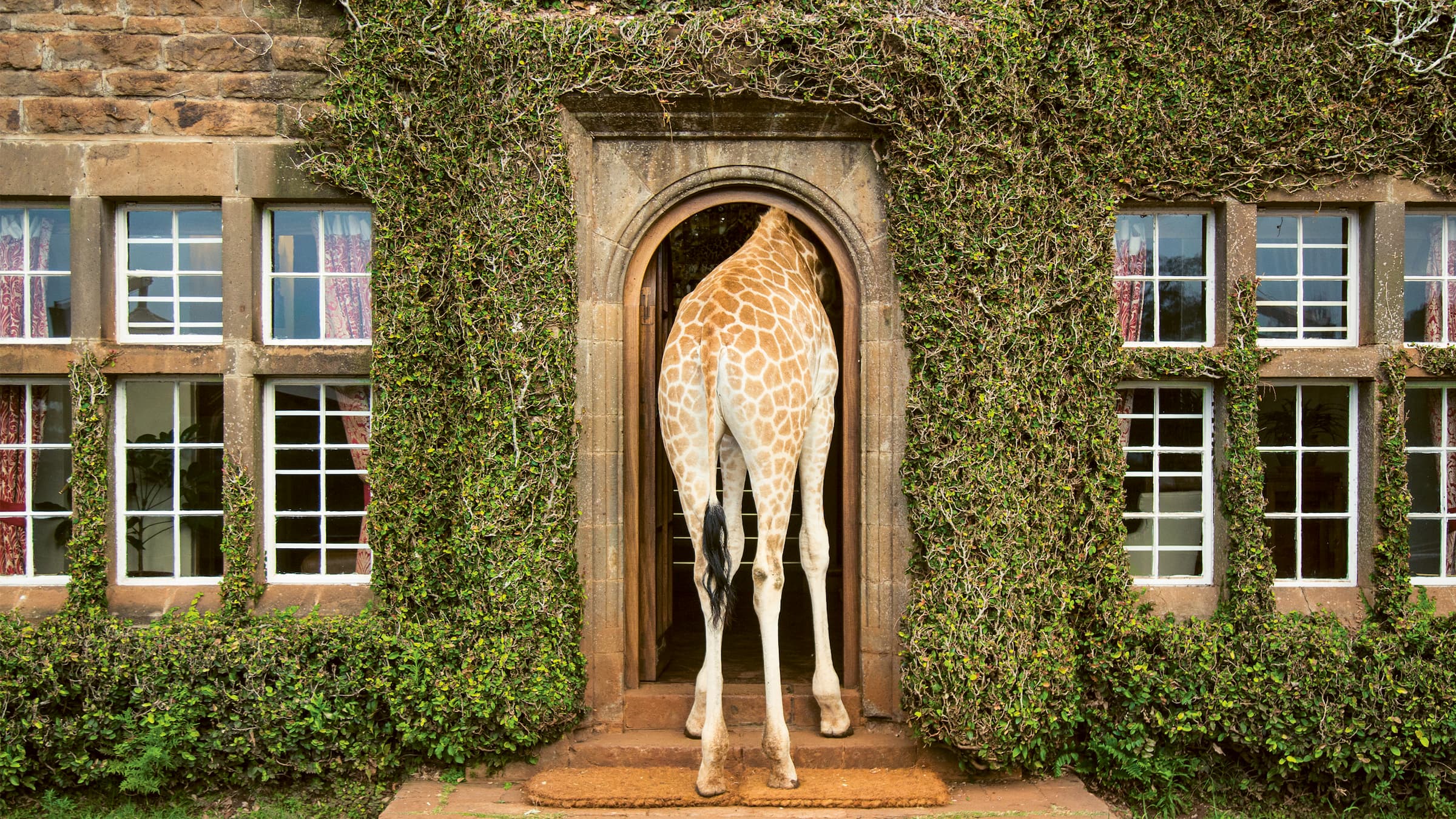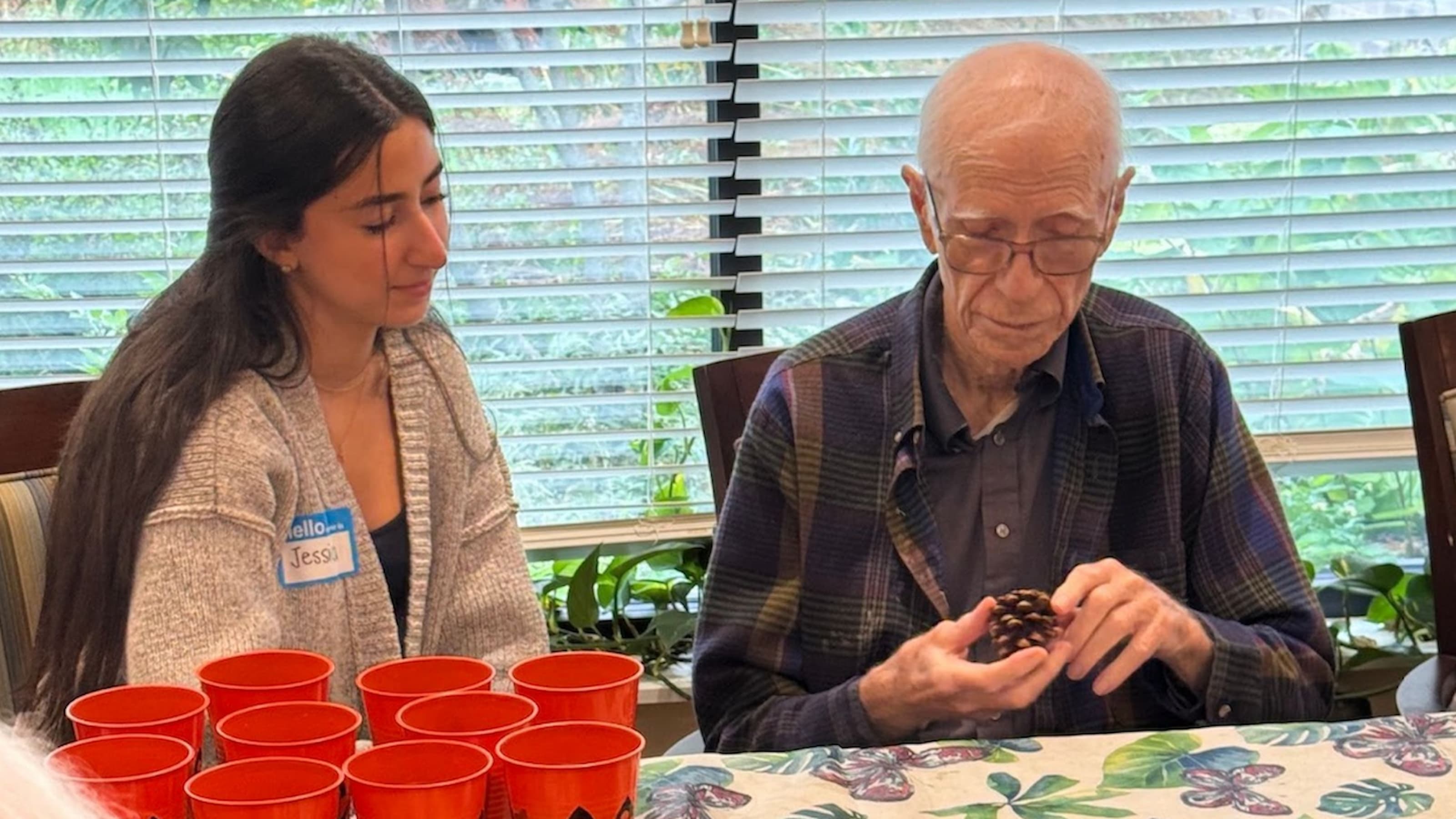A Change in Major Sparked a Major Change for Future Healthcare Worker
Madison Quinn ’19 assumed she would go into real estate, like the rest of her family. But her transformative time at Saint Joseph’s University helped her find the path to her true passion in health services.

Madison Quinn ’19 thought her path through college was decided for her early. Both her parents are in real estate, and she thought she could find a similar career by starting as an undecided business major. In addition to the classes that form the foundation of Saint Joseph’s liberal arts education, she enrolled in some core business classes.
But just a few weeks into her college experience, Quinn was feeling unfulfilled.
“Part of being at college is being on your own for the first time, and with that independence, you get a better sense of what your likes and dislikes are,” Quinn explains. “It’s not that I disliked my business classes, but I realized I didn't fit in as well as I fit into my other classes. I know that not a lot of people say this, but I missed math and science.”
So before Thanksgiving break during her freshman year, Quinn changed her major. She had a sense that her passion for science would lead her to a career in the healthcare field, and chose interdisciplinary health services as her new area of study.
“[The field] was all very unknown to me, and so I was hesitant to tell my parents,” she says. “But I think they valued the fact that I knew myself enough to realize it wasn't for me. And because I was at Saint Joseph’s, I knew I had advisors and professors that were willing to talk to me and explain the transition, and that really made everything much more comforting.”
After the switch, things began to fall into place for Quinn. She helped coordinate Think Pink Week, a series of events to raise awareness about breast cancer. She enrolled in service-learning courses, which sent her to nursing homes and continuing care facilities to work with elderly patients.
One class in particular — Death & Dying, led by Frank Bernt, Ph.D., associate dean and professor of health studies — taught Quinn how to approach patients at the end of their lives.
“People think that you want to be a doctor, a nurse, a physician’s assistant or something like that because you want people to get better,” she explains. “But sometimes they don't get better. And I learned that sometimes you have to have a difficult conversation with someone to ensure that dignity and respect is withheld through the entire dying process. I think that kind of goes undiscovered until you're actually working in the field, and I felt very fortunate to be able to unpack those things so young and realize there is a right and wrong way to treat those situations.”
Quinn recalls one moment from the course that crystallized her path forward. On one of her visits to the hospice, she found herself in the area of a patient who was distraught and struggling. Like many young people experiencing medical work for the first time, she was afraid.
And because I was at Saint Joseph’s, I knew I had advisors and professors that were willing to talk to me and explain the transition, and that really made everything much more comforting.”
Madison Quinn '19
“I came into the room and I was sweating,” she says. “I didn't know what to do. And I kept trying to fix things like adjusting her oxygen and her blankets and her pillows, and eventually she said ‘Stop whatever you're doing. Stop. I don't need the nurse. Just hold my hand.’ And in that moment I realized a part of healing someone is just being there. And I knew after that experience and moving forward that I could be there for somebody, whether they were going to get better or whether they're not, I just felt like I had the strength and the drive to really stick with someone through that experience.”
Quinn graduated from Saint Joseph’s with honors and quickly started her post-graduate studies to become a physician’s assistant. She said that improving access to care — something she did firsthand as part of the health promoters program in the Institute for Clinical Bioethics, giving health screenings to disadvantaged communities in West Philadelphia — will be her professional priority.
“I love the role of the physician’s assistant because they're kind of like a mid-level provider,” she says. “In primary care settings, they can see 10 patients that have non-critical issues, and that takes the pressure off of the physician so they can focus on someone who's very ill. And by doing that, you increase the access to care that people get.”
The Jesuit commitment to societal good also informs Quinn’s passion for making sure people can be treated by a qualified healthcare professional, no matter their means.
“Access to care is a social justice issue,” she says. “Everyone deserves to get preventative care. And I think being at St. Joe's and learning about things like solidarity and being with and for others really showed me that this access to care is critical in the medical world.”
Thinking back to the moment she decided to change majors, Quinn recalls the nerves that came with the choice.
“It was such a big change because it went from me going to college for four years and then working in the business world to wanting to be in the medical field, which is always much more than just four years,” she says. “It's a long path. But college is a time for transformation. You're not supposed to go to college knowing exactly what you're supposed to do, because it just never works out that way. Once I made the switch, I started to enjoy my education more and realized this is what I wanted to do. Even now, pursuing a physician assistant career, I feel that confidence all the way back from when I made that decision to switch majors still resonates in my life.”



